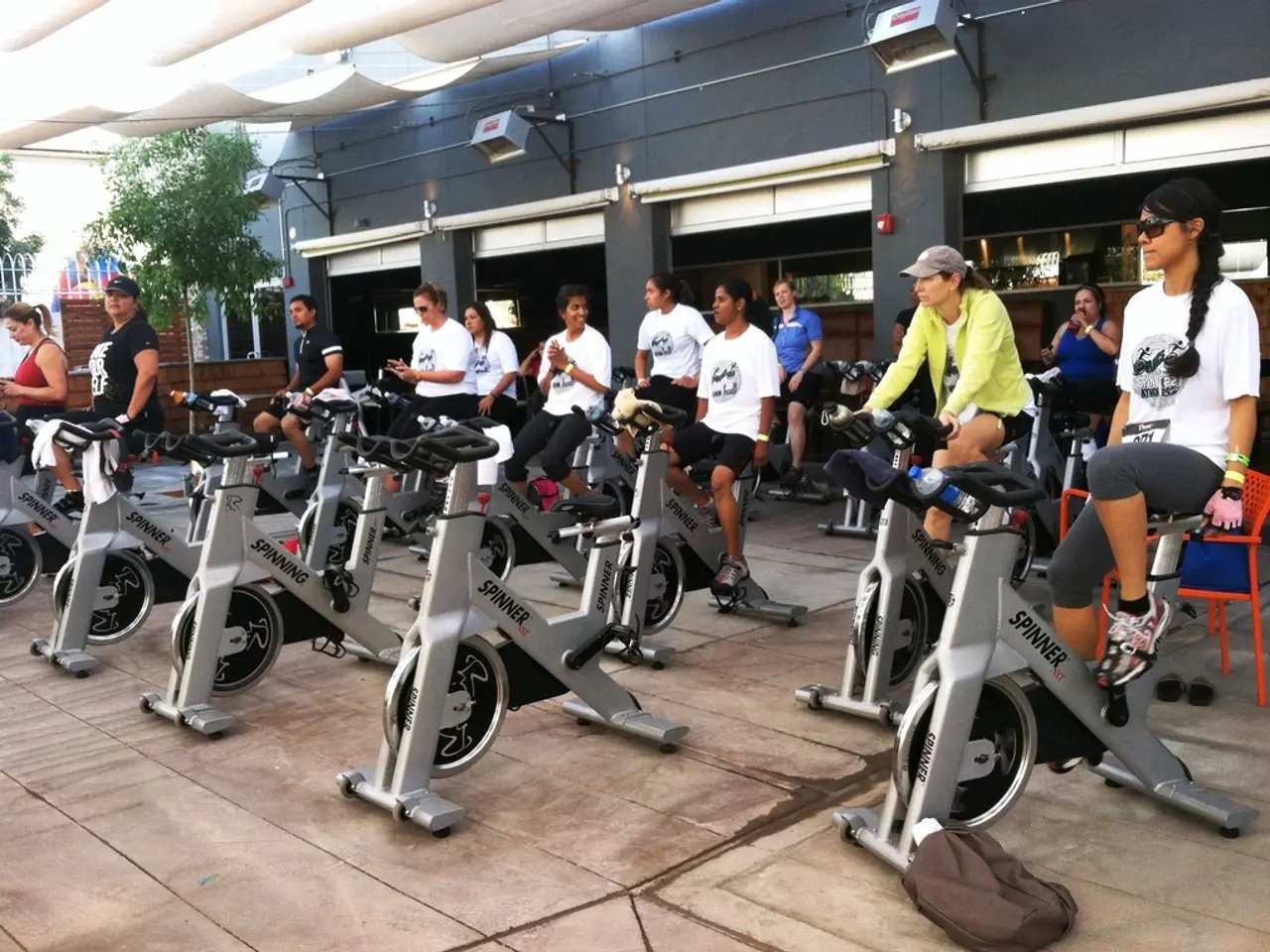Encouraging Rapid Empirical Behavioral Therapy Promotes Exercise Enthusiasm and Preparedness in Inactive Adults
Rational Emotive Behavior Therapy (REBT), a form of cognitive-behavioral therapy, has shown potential in helping individuals overcome psychological barriers to regular exercise. A study published in Frontiers in Psychology (2025) explored the impact of REBT on two individuals who were not currently engaged in regular exercise but intended to be in the near future.
The five-week REBT intervention, delivered via videoconferencing, mirrors formats familiar in health coaching or behavioral programs. Each participant received one-hour sessions, supported by guided activities, aimed at teaching them to identify and challenge irrational beliefs about exercise and self-worth.
Both participants reported significant reductions in irrational beliefs and increases in self-determined motivation. One participant even began jogging again, using techniques from the therapy to manage anxiety and stick with their goals. The other participant increased their physical activity by walking and cycling.
Statistical analyses confirmed these changes were not only meaningful but in some cases dramatic. For example, one participant's irrational beliefs dropped from a score of 34 to just 8, while their self-determined motivation more than doubled. Social validation interviews revealed that the changes felt personally significant and extended into other areas of life.
The study suggests that internal cognitive barriers are just as crucial to address as structural barriers in promoting exercise. However, its effectiveness on broader health behaviors or long-term exercise adherence requires further investigation. REBT primarily focuses on cognitive restructuring and may not fully address physical, environmental, or social barriers to exercise.
Despite these limitations, REBT may offer a cost-effective way to support individuals who are motivated but feel stuck. The detailed idiographic approach allowed for deep insights into individual experiences, showing that even within the same framework, people respond at different paces and in different ways.
In summary, REBT appears to be a promising method for helping individuals overcome cognitive and emotional barriers to regular exercise by fostering rational thinking and enhancing motivation. However, its effectiveness on broader health behaviors or long-term exercise adherence requires further investigation, and it may be most effective as part of a comprehensive approach addressing multiple dimensions of behavior change.
Citation: Turner, M. J., Frost, N., Outar, L., Tóth, R., Tóth, L., Chadha, N., & Wood, A. G. (2025). Rational Emotive Behavior Therapy for exercise: Examining self-determined motivation, alongside readiness, confidence, and motivation to exercise. Frontiers in Psychology, 16, 1557885. https://doi.org/10.3389/fpsyg.2025.1557885
- Rational Emotive Behavior Therapy (REBT), a form of cognitive-behavioral therapy, has the potential to help individuals overcome anxiety and emotional barriers to regular fitness-and-exercise, as shown in a study published in Frontiers in Psychology (2025).
- The study, titled "Rational Emotive Behavior Therapy for exercise: Examining self-determined motivation, alongside readiness, confidence, and motivation to exercise," delivered a five-week REBT intervention to two individuals not currently engaged in regular exercise.
- Each participant received individualized, one-hour sessions via videoconferencing, aimed at teaching them to challenge irrational thoughts about exercise and self-worth.
- Both participants reported reductions in anxiety, increased motivation, and notable changes in their exercise behaviors, with one participant resuming jogging and the other increasing walking and cycling activities.
- Statistical analyses revealed that these changes were significant, with one participant's irrational thoughts dropping dramatically and self-determined motivation more than doubling.
- The study suggests that addressing cognitive and emotional barriers, such as irrational beliefs and anxieties, is critical in promoting regular exercise, but further research is needed to assess its effectiveness on broader health-and-wellness behaviors and long-term exercise adherence.
- Despite these limitations, REBT may represent a cost-effective method to support individuals seeking to overcome psychological obstacles hindering their fitness-and-exercise efforts, particularly when integrated into comprehensive therapy-and-treatments approaches addressing multiple dimensions of behavior change.




